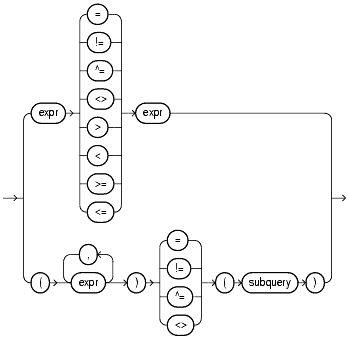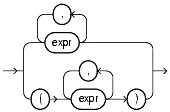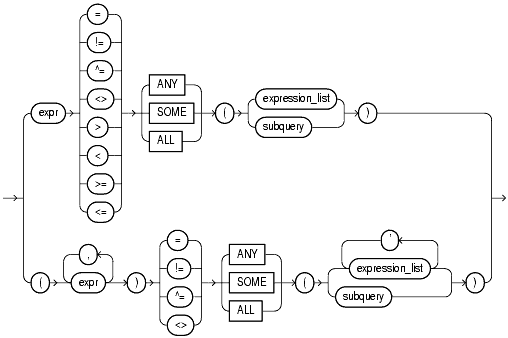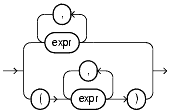| Oracle9i SQL Reference Release 2 (9.2) Part Number A96540-02 |
|
|
View PDF |
| Oracle9i SQL Reference Release 2 (9.2) Part Number A96540-02 |
|
|
View PDF |
Comparison conditions compare one expression with another. The result of such a comparison can be TRUE, FALSE, or UNKNOWN.
|
Note: Large objects (LOBs) are not supported in comparison conditions. However, you can use PL/SQL programs for comparisons on |
Table 5-2 lists comparison conditions.
A simple comparison condition specifies a comparison with expressions or subquery results.
simple_comparison_condition::=

expression_list::=

If you use the lower form of this condition (with multiple expressions to the left of the operator), then you must use the lower form of the expression_list, and the values returned by the subquery must match in number and datatype the expressions in expression_list.
See Also:
|
A group comparison condition specifies a comparison with any or all members in a list or subquery.
group_comparison_condition::=

expression_list::=

If you use the upper form of this condition (with a single expression to the left of the operator), then you must use the upper form of expression_list. If you use the lower form of this condition (with multiple expressions to the left of the operator), then you must use the lower form of expression_list, and the expressions in each expression_list must match in number and datatype the expressions to the left of the operator.